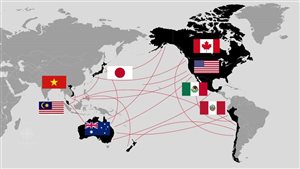Your hosts today, Lynn, Marc and we welcome Levon Sevunts back to RCI as the new member of our English team.
Listen
The massive flood of migrants and refugees into Europe from Syria and elsewhere has strained resources in many countries.
The crisis struck home during the recent Canadian federal election campaign, and while the then governing Conservative pary had adopted a go-slow and carefully policy in terms of accepting refugees, about 10-thousand and over an extended period, the other two major parties , the LIberals, and New Democrats had said they would bring in many more , and much quicker.
Liberal leader, and now Prime Minister designate Justin Trudeau had promised to bring in 25,000 by the end of the year if elected.
He now has to make good on that promise.
Levon Sevunts spoke with Kyle Matthews, a former official with the U.N. Refugee Agency and now with the Canadian Global Affairs Insitute who says that goal presents real challenges.

With a hectic modern lifestyle, getting the whole family together at one time can be difficult.
Where decades ago it was the norm, now in many cases it’s the exception. And that’s a shame, not only for a lack of being together but for health reasons.
A new study shows that for adolescent youth, eating with a least one other family member is measurably better for heart health.
Lynn spoke with Dr. Michael Koury, a paediatrician at Sick Kids Hospital in Toronto and co-author of the study.

A Canadian expert in international law has come up with a way to assure governments enacted climate change legislation and policies aren’t sued by corporations for potential “lost profit”
Under international and multinational trade deals, corporate interests have been included in the form of clauses protecting them and their development plans from being stymied by government policies.
Many international oil companies for example have secured rights to explore for oil and gas in other countries, but if climate change policies enacted by governments prevent that, the companies can sue under those clauses for “lost potential revenue” often amounting to millions of dollars.
Marc spoke to Canadian law professor Gus Van Harten who has come up with a legal proposal called a “carve out” which would protect governments should they choose to enact climate change legislation which puts the environment ahead of corporate interests. The proposal has already been adopted by the European Parliament and will be proposed at the UN climate summit in Paris in November.







For reasons beyond our control, and for an undetermined period of time, our comment section is now closed. However, our social networks remain open to your contributions.